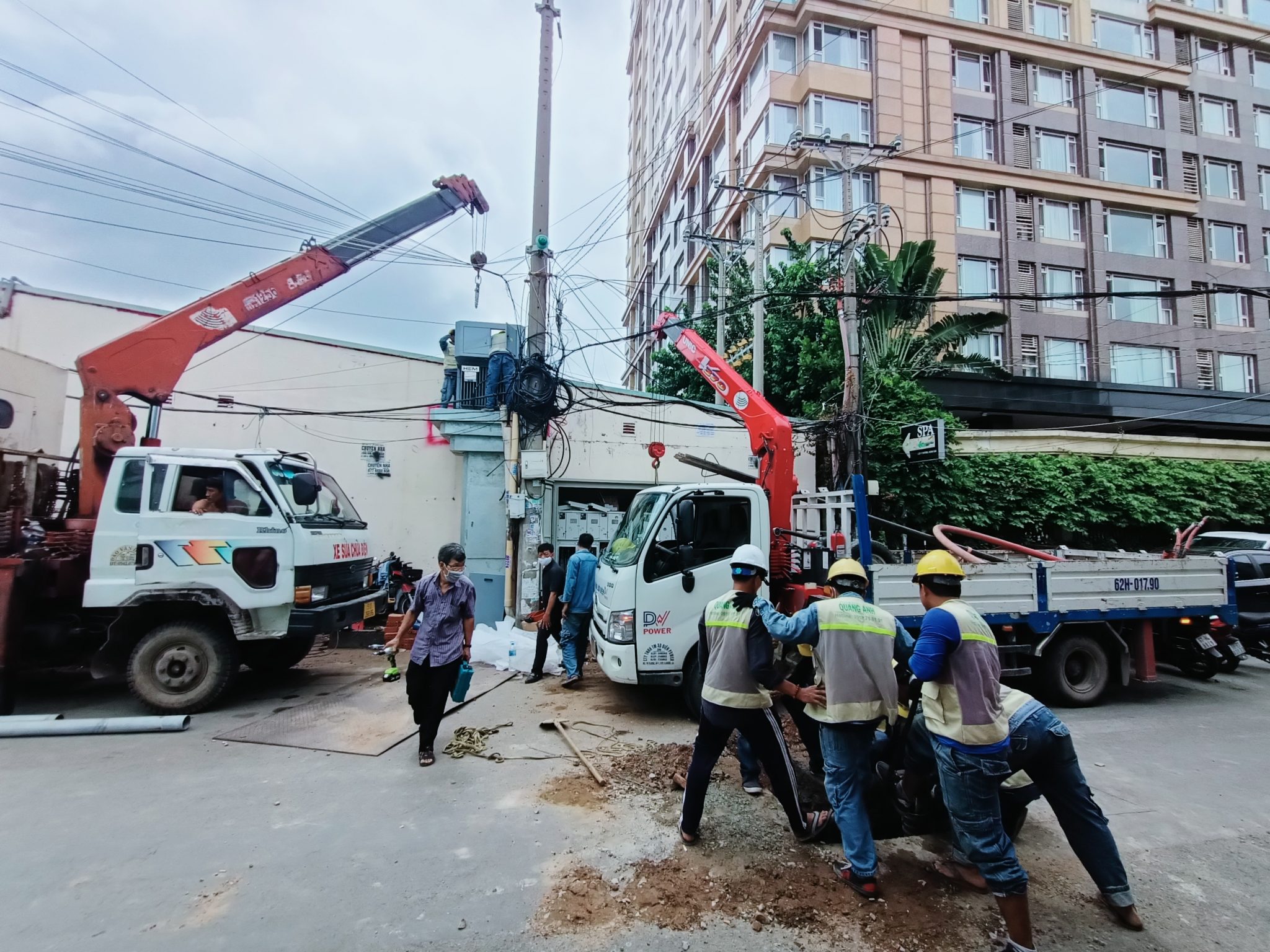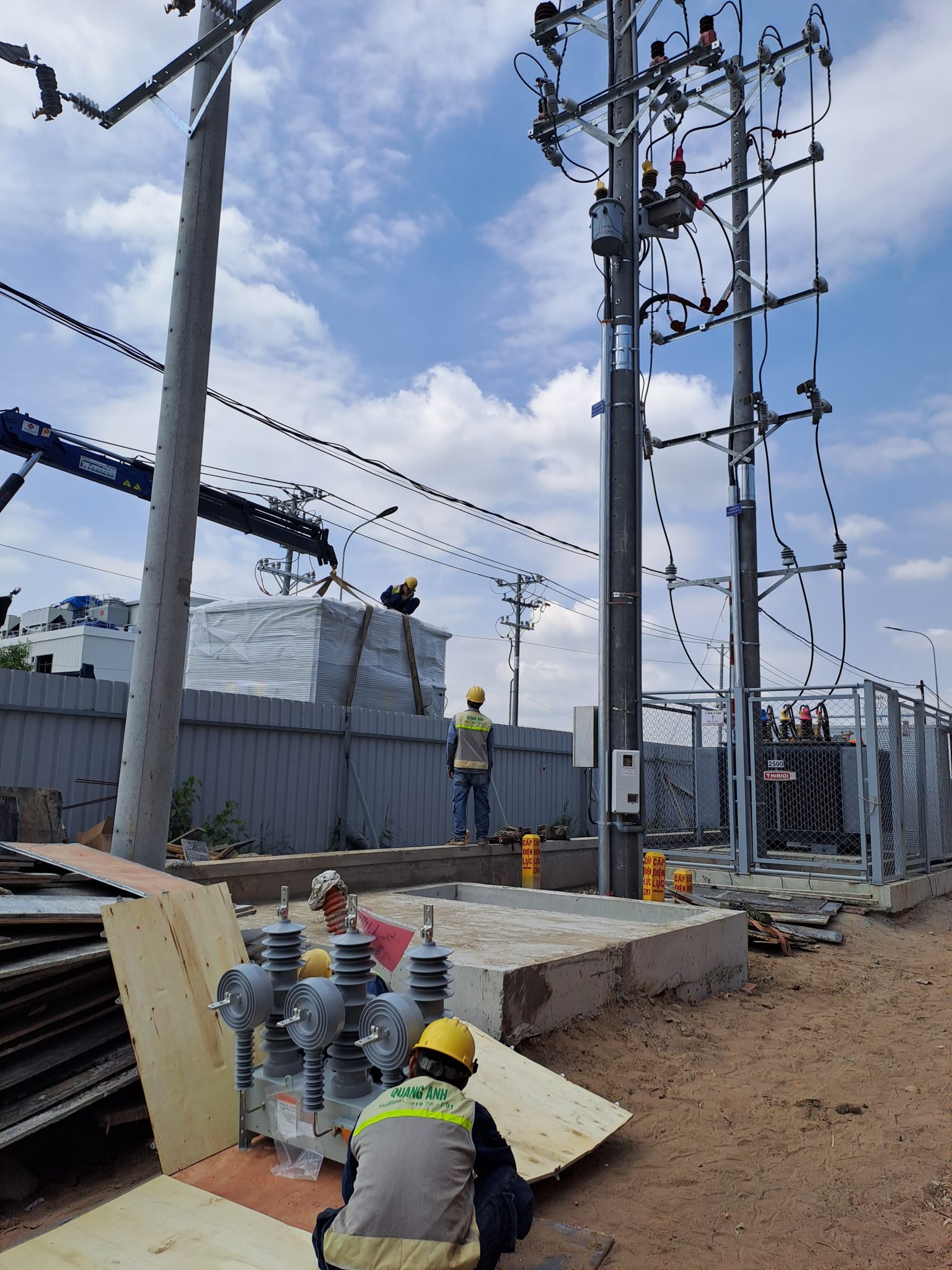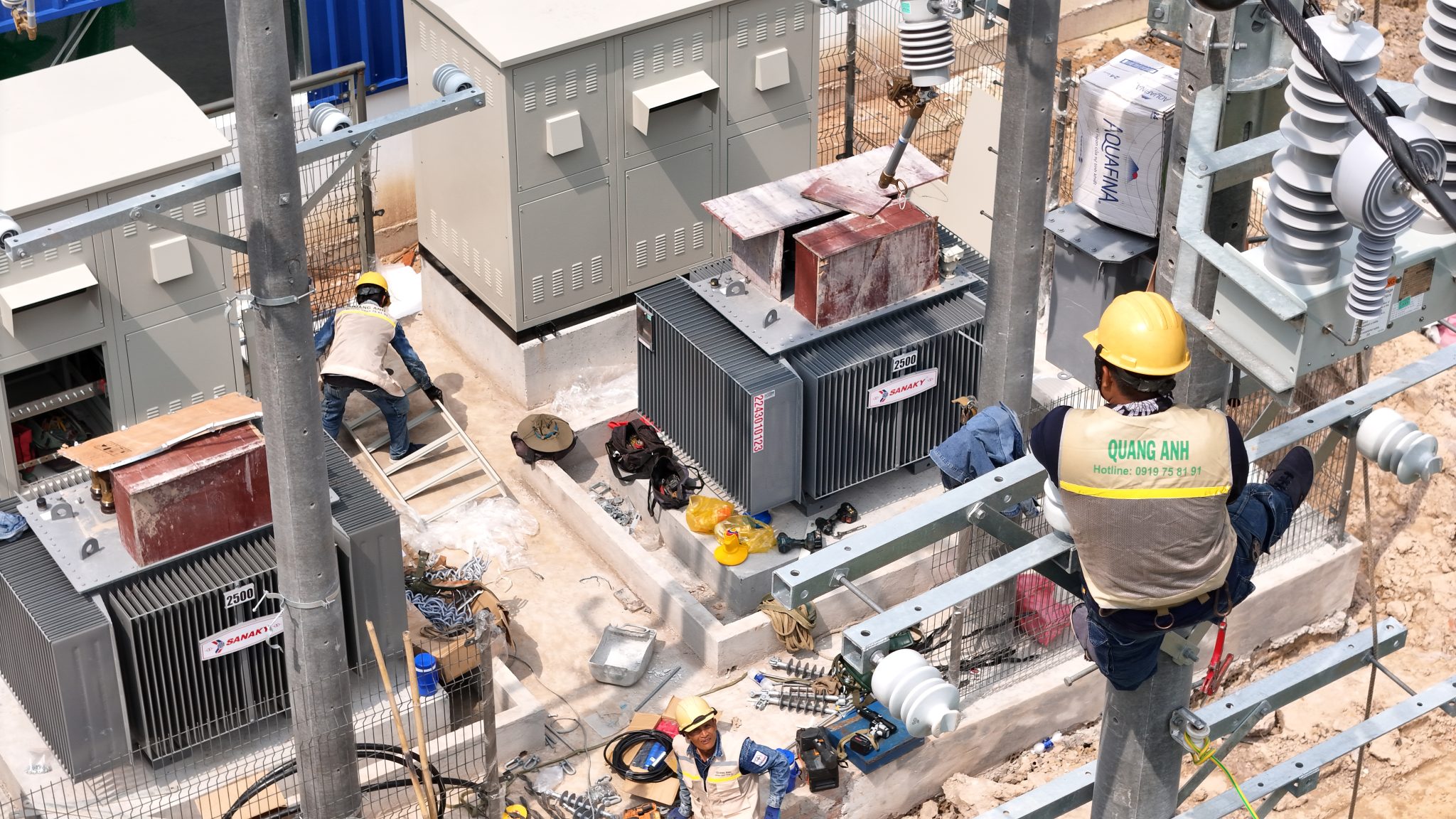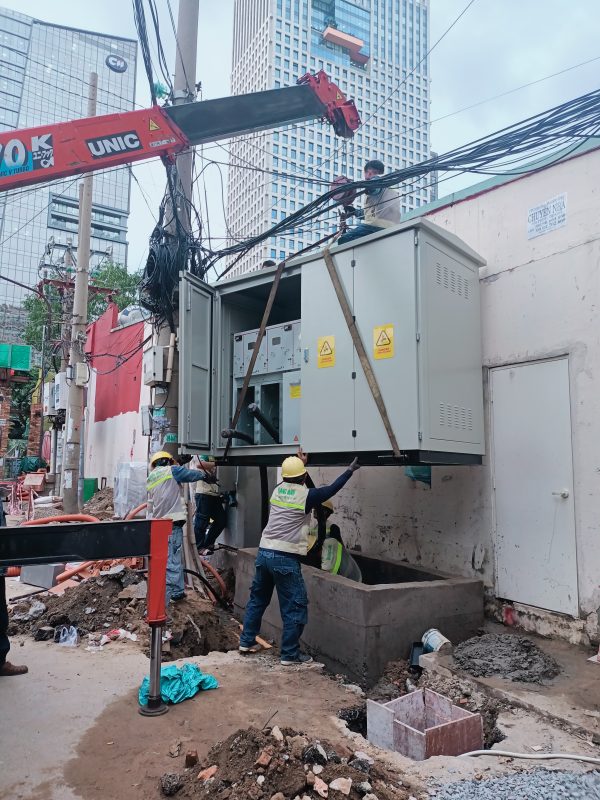Rooftop solar contractors are responsible for handling the entire process, from surveying and design to operation and maintenance of solar power systems. By offering flexible financial models, they provide an efficient solution for businesses keen on investment but lacking capital.
The Fundamental Role of EPC Contractors in Rooftop Solar
As leaders in the field, EPC contractors play a pivotal role in surveying, designing, supplying, constructing, and operating solar power systems. By optimizing technical factors and utilizing advanced equipment, such as solar panels and inverters, they ensure high standards in all stages.
- Comprehensive Project Management: EPC contractors oversee every phase, from energy surveying and solar design to equipment selection and construction. This integrated approach saves time and ensures project quality for investors.
- Quality and Safety Assurance: Throughout all stages—from design to execution—strict compliance with safety and technical standards is maintained, optimizing effectiveness and system longevity.
- Cost Efficiency and Resource Optimization: EPC contractors can manage or outsource segments of projects, using brands like ABB and Mitsubishi to optimize investments.
- Flexible Financing and Ownership Models: Some contractors offer ‘no upfront investment needed’ models in partnership with financial entities, allowing businesses an affordable transition to solar energy.
- Seamless Business Support: Beyond construction, EPC contractors provide maintenance and operational support, ensuring stable clean energy for improved corporate brand image during the shift to renewables.

Design and Construction Process of Solar Power Systems
The EPC contractor’s process includes all aspects from solar technical design to execution. It begins with a site survey to understand environmental factors and optimize the system, followed by detailed technical designs to ensure performance and safety.
1. Data Gathering and Field Survey
- Evaluate energy consumption needs using monthly/yearly bills to define installation goals.
- Conduct on-site evaluations to assess natural factors, ensuring effective Solar Panel Installation.
- Review existing electrical systems for seamless integration with Renewable Energy Systems.
- Determine budget for selecting suitable PV System Design solutions.
2. Power Calculation and Equipment Selection
- Calculate necessary power based on real demand and geographic details for system Energy Efficiency.
- Select suitable solar panels, inverters, and batteries balancing technical and financial requirements.
- Define system efficiency, input/output voltage for peak performance.
- Popular equipment brands such as ABB, Mitsubishi, Schneider are recommended.
3. System Design
- Create site layout maps following geographical orientation for optimal Solar Panel Installation.
- Develop comprehensive electrical schematics detailing components like solar panels, inverters, and controllers.
- Specify dimensions, distances, and orientation for optimal energy capture.
- Select supporting materials like steel or aluminum, ensuring corrosion resistance.
4. Detailed Technical Drawing
- Detail capacity, efficiency, and voltage of all equipment in the design.
- Draw wiring systems for easy connection and maintenance.
5. Construction Planning
- Define construction timeline and prepare materials.
- Allocate personnel and establish quality control checkpoints.
6. Installation
- Install mounting structures and secure panels per design drawings.
- Connect devices, ensuring electrical safety and lightning protection.
- Set up protection devices and wiring systems.
7. Testing and Operation
- Test overall system for power output, voltage, and connectivity.
- Evaluate protective measures against overloads and leaks.
- Conduct trial runs and adjust to ensure stable operation.
8. Maintenance and Monitoring
- Plan regular maintenance, cleaning panels for sustained performance.
- Monitor performance via monitoring devices, rapidly resolving issues.

Financial Models Supporting Businesses in Solar Projects
EPC contractors not only provide technical services but also financial support through models like ESCO or roof leasing. These enable businesses to implement solar projects without initial investment while harnessing clean energy long-term.
ESCO Model (Energy Service Company)
The ESCO financial model is an effective solution for solar project financing, allowing businesses to save on upfront investments. Businesses collaborate with financial and technical partners, who take responsibility for system investment and operation.
- Operational Mechanism: Businesses lease rooftops and purchase electricity from the systems at rates 10-15% lower than conventional grid prices.
- Application Conditions: Suitable for businesses with high energy demands; roof space and minimum consumption requirements must be met.
- Advantages: Cost savings, no need for initial capital, enhanced competitive advantage.
- Risks & Considerations: Ensure contracts clearly delineate mutual rights and obligations.
B.O.O.T Model (Build-Own-Operate-Transfer)
The B.O.O.T model represents a new path for energy investment support: construction, ownership, operation, and transfer. Here, investors handle all processes, allowing businesses to enjoy renewable energy without investing heavily.
- Benefits for Businesses: Use clean energy, reduce grid dependence, save costs, and promote sustainable development.
- Financial Aspect: Contractual agreement for electricity purchase at favorable rates; operational and maintenance costs are covered by the investor.
State Electricity Pricing Programs
The 2025 solar electricity pricing framework provided by the government per Decision 988/QĐ-BCT is a crucial financial lever in solar financing, helping investors and businesses project profits and encouraging efficient investment.
- Fixed electricity prices vary regionally to encourage renewable energy projects.
- Establishes a sound basis for financial cooperation models in solar energy.

With comprehensive quality control, legal support, and flexible financial models, rooftop solar contractors provide optimal solutions for businesses. Choosing an EPC contractor not only reduces costs but also demonstrates a commitment to sustainable clean energy.
Learn more about rooftop solar solutions at QuangAnhcons. Contact the Hotline: +84 9 1975 8191 for detailed consultation.
QuangAnhcons offers rooftop solar EPC contracting services, including surveying, design, construction, operation, and maintenance. With flexible financial models like ESCO, QuangAnhcons helps your company own clean energy systems without initial investment.
[contact-form-7 id="7239967" title="Contact form 1"]


Related Posts
Tay Ninh Solar Power Planning: Technical Framework, Grid Interconnection, and Rollout Roadmap
Technical overview of solar planning in Tay Ninh: irradiation, grid capacity, permitting, design, operations, and [...]
Dec
Binh Duong Solar Planning: Regulatory Framework, Grid Interconnection, and an Implementation Roadmap for Factories and Industrial Parks
An overview of Binh Duong solar planning: legal framework, interconnection, design, risk management, and an [...]
Dec
Solar Farm Repair: O&M Workflow, IV Curve Diagnostics, Thermography, Inverter Service and Utility-Scale Safety
A utility-scale solar farm repair plan centered on O&M, IV curves, thermal imaging, inverter service, [...]
Dec
Dong Nai Solar Power Plan 2023–2025: Tri An 1,029 MW, Grid Upgrades and the DPPA Pathway
A complete look at Dong Nai’s solar power plan: Tri An 1,029 MW, irradiation potential, [...]
Nov
Quang Ngai Solar Power Plan 2024–2030: Legal Framework, Irradiance Potential, and Development Roadmap
A complete look at Quang Ngai’s solar power plan: capacity targets, irradiance (PVout), development zones, [...]
Nov
Solar Damage Assessment Services: On-Site Procedures, EL/IV/Thermography Testing & Compliance with Standards
Discover IEC/UL/NEC standard solar damage assessment processes: on-site evaluation, EL and IV curve testing, thermal [...]
Nov
Comprehensive Package Estimate for a 1800MVA 500kV Substation: Scope, Configuration 3x600MVA, Standards and Timeline Management
An overview of the 1800MVA 500kV substation estimate: construction scope, configuration 3x600MVA, GIS/AIS, SCADA, standards, [...]
Nov
Factory Electrical Systems: Comprehensive Design and Implementation Guide
Discover the detailed and safe process of factory electrical systems design and implementation. [...]
Oct
Blueprints Required for Factory Construction Permits
Discover the necessary blueprints in factory construction permit applications, from floor plans to electrical and [...]
Oct
What Are the Requirements for a Factory Construction Permit? A Comprehensive Guide
Explore the documentation and steps needed to secure a factory construction permit for streamlined project [...]
Oct
Factory Construction Permit Procedures in Vietnam: Essential Guidelines and Documents
Learn the procedures for securing a factory construction permit in Vietnam, focusing on document preparation [...]
Oct
Key Steps in the Factory Construction Process
Discover the essential steps and requirements for building factories. [...]
Oct
Comprehensive Electrical Substation Solutions by Quanganhcons
Discover the cutting-edge electrical substation solutions offered by Quanganhcons for industrial applications. [...]
Oct
Investment Costs for a 1MWp Solar Power System and Influencing Factors
Explore the investment costs for a 1MWp solar power system in Vietnam and the influencing [...]
Sep
QuangAnhcons: Elevating Wind Energy Solutions
Explore QuangAnhcons' leadership in wind energy and renewable solutions in Vietnam. [...]
Sep
Electrical Contractor Strategies at Becamex Industrial Park
Discover the strategic advancements and partnerships of the electrical contractor at Becamex Industrial Park. [...]
Sep
Investment Insights for 1MW Wind Energy in Vietnam: Costs and Opportunities
Discover the detailed analysis of costs and opportunities for investing in 1MW wind energy projects [...]
Sep
Advanced Electrical Installation Solutions by QuangAnhcons
Explore advanced electrical installation solutions and modern technology with QuangAnhcons. [...]
Sep
Enhancing Industrial Electrical Services with Quanganhcons
Discover Quanganhcons' expertise in industrial electrical services, offering efficient and sustainable power systems. [...]
Sep
Comprehensive MEP Solutions by QuangAnhcons: From Design to Maintenance Excellence
Discover optimal MEP solutions with QuangAnhcons, dedicated to excellence from design through maintenance. [...]
Sep